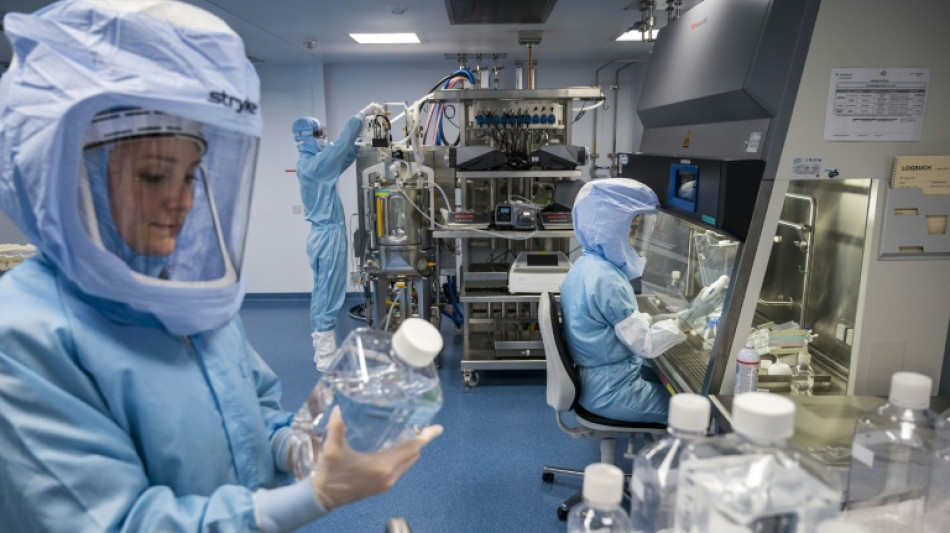
Pandemic accord deal in sight as talks resume

After over two years of talks, the World Health Organization's 194 member states reconvened on Monday to secure a deal on tackling future pandemics amid new outbreaks of mpox and other diseases.
Hopes are high of wrapping up a landmark accord over the coming fortnight, though the nuts and bolts on how to share pathogens and vaccines are set to be worked out afterwards.
In December 2021, fearing a repeat of the devastation wrought by Covid-19 -- which killed millions of people, crippled health systems and crashed economies -- countries agreed to draft an accord on pandemic prevention, preparedness and response.
The emergence of a new strain of mpox, the deadly Marburg virus outbreak in Rwanda and the spread of H5N1 bird flu in recent months have given negotiators a jolt.
In its annual report issued in October, the Global Preparedness Monitoring Board said the recent spillover of H5N1 to humans and the unfolding mpox outbreak were "clear warnings".
"The high likelihood that they will spread further should be a wake-up call," it warned.
- Equity battle -
The pandemic agreement is being hammered out by the World Health Organization's 194 member states.
Many of the draft text's 37 articles were concluded during the 11 previous rounds of talks.
The key outstanding section revolves around the sharing of pathogens detected within countries, and subsequently of vaccines and other pandemic-fighting products derived from that knowledge.
It has turned into a stand-off between wealthier nations where most of the medicines are developed and poorer countries who felt cut adrift during the Covid-19 pandemic.
The plan is therefore to defer thrashing out how the proposed Pathogen Access and Benefit-Sharing System (PABS) would work in practice until after the broader agreement has been concluded.
WHO director general Tedros Adhanom Ghebreyesus said that whatever countries agreed, the accord had to prevent a repeat of the glaring inequalities exposed by Covid-19.
"If the world has failed with one thing it was the equity issue," he told a press conference on Friday.
"Africa was left behind then, and that should not happen," he said, calling for increased local production of pandemic-fighting products in the global south.
"Most of the things are addressed. There is already a middle ground for many of the difficult issues. If there is a will, there is a way," he insisted.
- 'Diluted and deleted' -
Adding to the momentum, G20 health ministers met in Rio de Janeiro on Thursday and voiced support for concluding an agreement.
"We reiterate our commitment to an instrument that is ambitious, balanced, effective and fit-for-purpose, including equitable access to medical countermeasures during pandemics," they said.
But Sangeeta Shashikant, the Third World Network NGO's intellectual property and development coordinator, said many of the PABS proposals put forward by developing countries had been "diluted and deleted".
"Across the board in the pandemic agreement, the feeling is there is really no meaningful deliverable" that would overturn the inequities of Covid-19, she told journalists.
The 12th round of talks comes after the world's biggest nature conservation conference closed in Colombia on Saturday with no agreement on a roadmap to ramp up funding for species protection.
The summit's biggest ask -- to lay out a detailed funding plan -- proved a bridge too far, as poor and rich country blocs haggled.
- 'Sour taste' -
The Independent Panel for Pandemic Preparedness and Response, headed by former New Zealand prime minister Helen Clark and Liberian ex-president Ellen Johnson Sirleaf, in May 2021 recommended creating a new pandemic treaty.
Clark warned last week that the major reforms needed had not been inked.
"It's not surprising the negotiations for the accord have run into a lot of trouble, because the south sees the north as protecting its pharmaceutical industries," she told London's Chatham House think-tank on Tuesday.
"All of this has left an incredibly sour taste between north and south."
Denis Mukwege, a 2018 Nobel Peace Prize winner, said the lessons of Covid-19 were being forgotten, citing how countries were stockpiling mpox vaccines rather than flooding the front line in his native country, the Democratic Republic of Congo.
Y.Destro--PV
